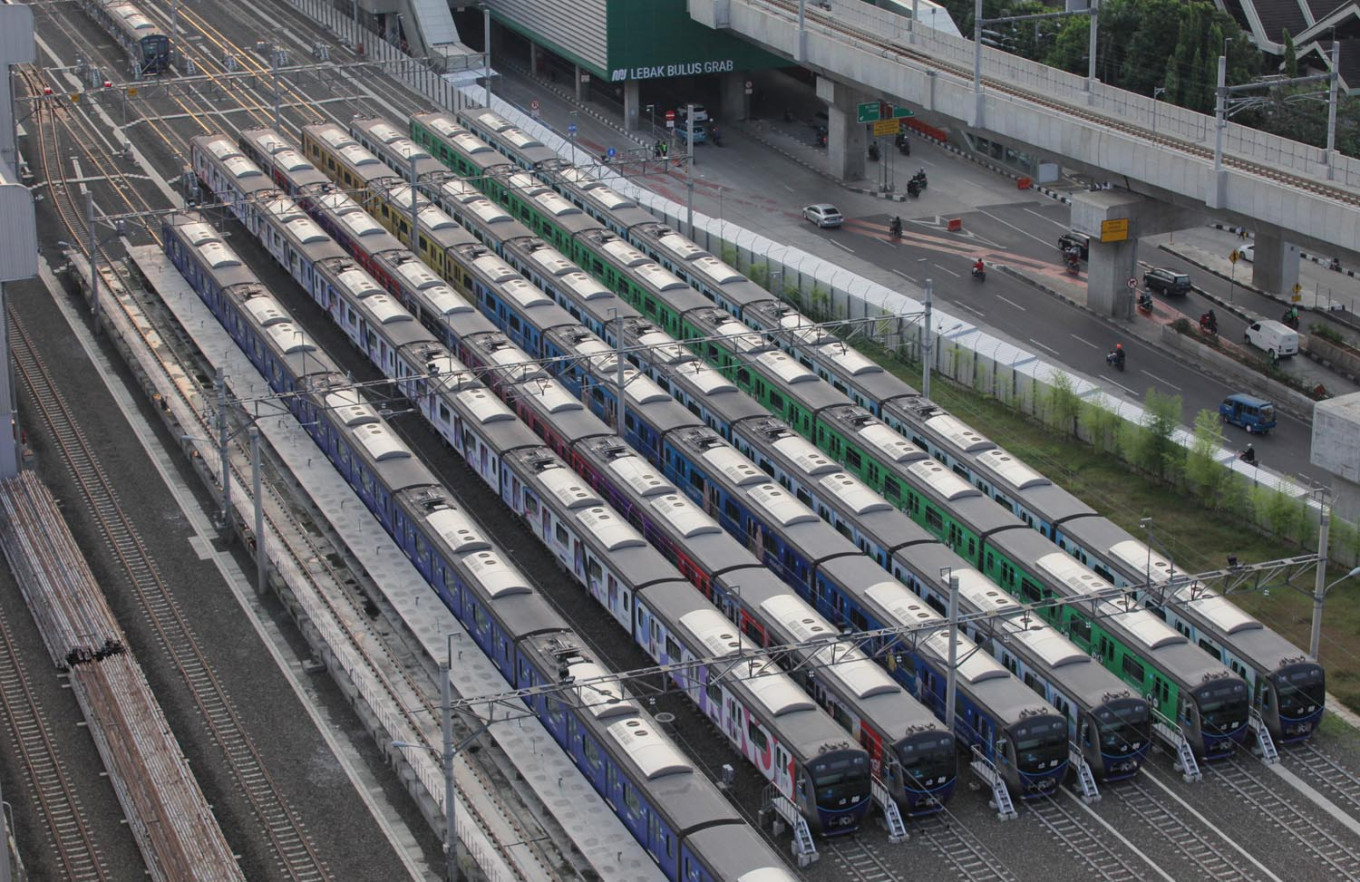Popular Reads
Top Results
Can't find what you're looking for?
View all search resultsPopular Reads
Top Results
Can't find what you're looking for?
View all search resultsMRT Jakarta phase 2 construction begins
Change text size
Gift Premium Articles
to Anyone
C
ity-owned transportation company PT MRT Jakarta commenced construction of phase 2 of the Jakarta MRT project last week, after a three-month delay caused by the COVID-19 outbreak in the capital.
MRT Jakarta, the operator of the country’s first subway service, officially commenced construction of a 2.8-kilometer underground tunnel from the Hotel Indonesia traffic circle (Bundaran HI) to the National Monument (Monas) in Central Jakarta – known as stage CP201 – a city official has said.
“On June 15, work commenced on MRT phase 2. We have issued a letter to the contractor, and the CP201 stage has started with the mobilization of workers,” MRT Jakarta president director William Sabandar said recently.
A total of 2,000 workers will be gradually deployed to the construction site for CP201, he added.
The firm deferred the commencement of work on CP201 as a result of the COVID-19 outbreak, having pushed it back from the initial March commencement with completion expected by December 2024. MRT Jakarta now expects the contract package to be concluded by March 2025.
With the outbreak yet to ebb in the capital, William gave an assurance that the company would implement all the necessary health protocols during construction. Among these is upholding the contractor’s responsibility to ensure workers remain safe throughout their stay in Jakarta.
“We will take a ‘business beyond normal’ approach. We’ll no longer be able to work on projects like we used to during the first phase,” he said, adding that office work would make use of more digital technology to reduce physical interactions.
During the three months of down time, both the company and the contractor had prepared for the commencement of work with field surveys, soil investigation, relocation of utilities, design completion and continuing the permit application process, MRT Jakarta construction director Silvia Halim said.
“We also ensured our readiness to implement health protocols,” she said recently.
Phase 2 of the MRT’s development will see the construction of seven underground stations, extending 6.3 kilometers from Bundaran HI to Kota in West Jakarta.
Stage CP201 proceeds alongside construction of other phase 2 stages, namely Harmoni-Mangga Besar (CP202) and Glodok-Kota (CP203), as well as the construction of railway systems and track work (CP205) and the procurement of rolling stock (CP206).
The firm has completed stage CP200, which was the construction of an electricity receiving substation (RSS) at Monas.
William said the deferral would not affect the continuation of the project because the government and the Japanese government, through the Japan International Cooperation Agency (JICA), had signed a deal for a loan worth Rp 22.5 trillion (US$1.59 billion) to fund phase 2.
However, as the loan will only cover the Bundaran HI-Kota route, the firm is seeking additional funding to continue the construction from Kota to West Ancol, where the train depot will be located.
He said the central government would request additional funding from JICA to complete the line up to the MRT Jakarta depot, which is phase 2B. The project’s value has yet to be revealed, pending feasibility studies.
During phase 2 construction, MRT Jakarta will simultaneously build transit-oriented-developments (TODs) in its stations. The company is attempting business-to-business (B2B) cooperation to gain funding to develop the integrated services, William said.
Since its launch last year, the MRT has seen a dramatic drop in ridership since the Jakarta administration imposed large-scale social restrictions (PSBB).
Before the COVID-19 outbreak, the MRT carried an average of 100,000 passengers daily. This number has declined sharply, with an average of just 2,000 passengers daily during the PSBB.
With the city administration beginning to ease restrictions, the MRT recorded an increase of up to 17,000 passengers in mid-June.










